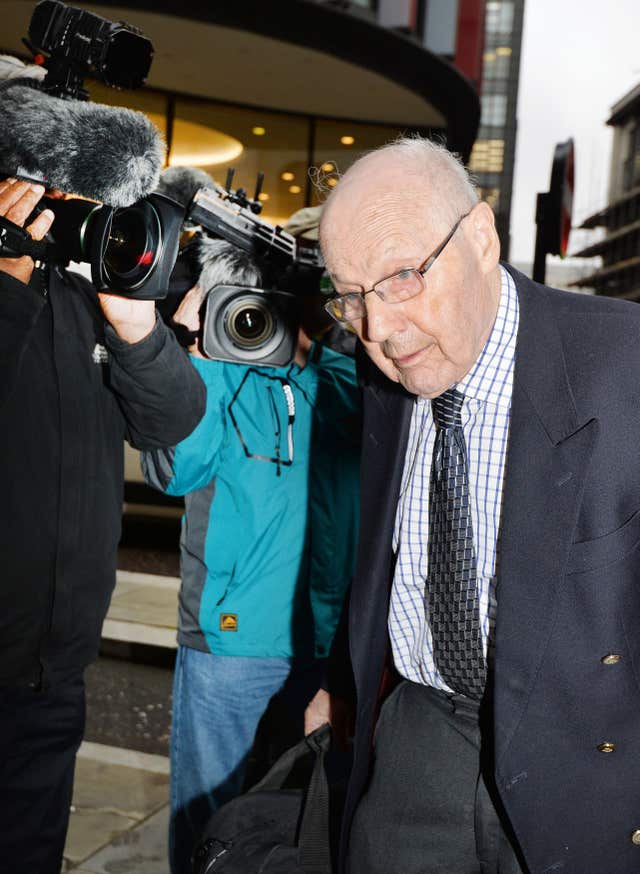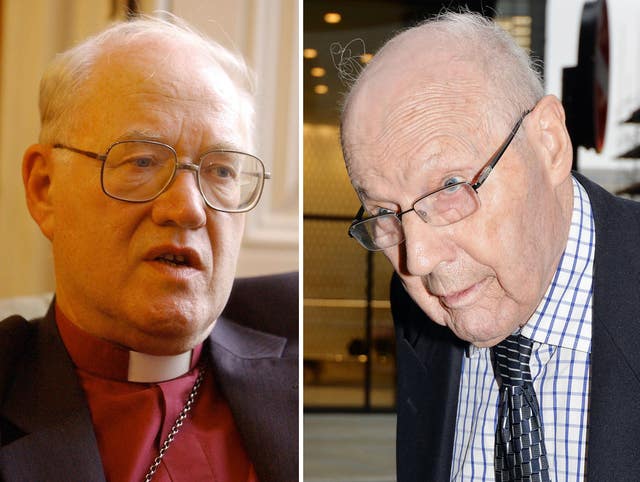
The support the Prince of Wales gave to shamed clergyman Peter Ball after his caution for gross indecency was “misguided”, a scathing report into abuse allegations at the Church of England has concluded.
The church was accused of “putting its own reputation above the needs of victims” by offering secrecy and protection for child abusers which allowed them to “hide in plain sight” for decades, despite damning allegations against them.
The Independent Inquiry into Child Sexual Abuse (IICSA) report said Ball, a self-styled confidant to Charles, was an example of how a senior member of the Anglican church “was able to sexually abuse vulnerable teenagers and young men for decades”, backed by support from senior colleagues which was “rarely extended to his victims”.
It said Charles’s actions – in speaking about Ball with the then-Archbishop of Canterbury and a member of Lambeth Palace, and the Duchy of Cornwall buying a property to rent to Ball and his brother – were “misguided”.
“His actions, and those of his staff, could have been interpreted as expressions of support for Peter Ball and, given the Prince of Wales’ future role within the Church of England, had the potential to influence the actions of the Church,” the report added.
Charles – who maintained a correspondence with Ball for more than two decades after the caution – told the inquiry he regretted being “deceived” by Ball, the former Bishop of both Lewes and Gloucester.

The report focused on evidence against the Diocese of Chichester and against Ball, and found “a number of serious failings” following allegations of child sexual abuse dating back more than 40 years.
IICSA found claims of abuse were not handled adequately by the Church, lacked urgency or appreciation of their seriousness and allowed the Church to prioritise its own image above its responsibilities to victims.
One of Ball’s victims, Neil Todd, killed himself aged 38 after being “seriously failed” by the Church, which “discounted Ball’s conduct as trivial and insignificant” while displaying “callous indifference” to Mr Todd’s complaints.
The report also criticised former Archbishop of Canterbury Lord Carey, who showed “compassion” to Ball and displayed his “overt support” for him despite there being no justification.
Victims were “disbelieved and dismissed” by those in authority at the Diocese of Chichester, which received the most reports of child sexual abuse in any of the 42 dioceses in England and Wales during half a century.
Professor Alexis Jay, inquiry chairman, said: “For years, the Diocese of Chichester failed victims and survivors of child sexual abuse by prioritising its own reputation above their welfare.
“Not only were disclosures of abuse handled inadequately by the Church when they came to light, its response was marked by secrecy and a disregard for the seriousness of abuse allegations.
“Peter Ball is one example of how a senior member of the clergy was able to sexually abuse vulnerable teenagers and young men for decades.
“The public support he received is reflective of the Church’s culture at the time – a support that was rarely extended to his victims.”
Ball, now in his late 80s, accepted a caution for one count of gross indecency in 1992 and resigned due to ill-health.
It was not until 22 years later that he finally admitted his crimes, and was jailed in 2015 for sexually abusing 18 young men over three decades.
The report also found that the Crown Prosecution Service (CPS) missed an opportunity to charge Ball with a slew of offences in 1992, which he subsequently admitted in 2015.
He was released in February 2017 after serving half of his 32-month sentence behind bars.
He was deemed too ill to give evidence to the inquiry in person, but submitted a lengthy statement in which he said he had got to know Charles better after his divorce from Diana, Princess of Wales, and that their relationship “was one of support and respect”.
Charles, who will be Supreme Governor of the Church of England when he becomes king, told the inquiry he “at no stage (sought) to influence the outcome” of any police investigation into Ball.
It followed a series of letters between the prince and Ball, in which Charles said he wished he could “do more” during correspondence in 1995 following the clergyman’s upset at his own plight.
He added: “I feel so desperately strongly about the monstrous wrongs that have been done to you and the way you have been treated.”
Charles also wrote in support of finding a Duchy property for Ball and his brother to rent, adding: “I long to see you both settled somewhere that suits you and gives you peace and tranquillity.”
Ball and his brother, Michael, the then-Bishop of Truro, rented a Duchy home between 1997 and 2011.
In addressing Charles’s involvement with Ball, the report said: “The actions of the Prince of Wales – in speaking about Ball with the Archbishop of Canterbury and a member of Lambeth Palace, and the Duchy of Cornwall buying a property to rent to Ball and his brother – were misguided.”
The report found that Ball’s “charisma, charm and reputation” enabled him to avoid an initial criminal conviction, while he was said to “relish” contact with “prominent and influential people”, such as the prince.
The IICSA said the Church’s response to Ball’s arrest in 1992 was to minimise his offending and later to return him to ministry with “indecent haste”, without any kind of basic assessment of risk to children.

It criticised Lord Carey, who it was claimed “equivocated” following the allegations against Ball, “seeming frequently to do the wrong thing when there was a choice to be made”.
The report said Lord Carey showed compassion only for Ball, adding: “Almost every aspect of his decision-making regarding Peter Ball indicates poor judgment and a failure to recognise the appalling experiences of Ball’s victims.”
In its conclusions, the report said the Church failed with its response to the accusations – which were marked by “clericalism” through a lack of accountability and a belief in their own superiority, and of “tribalism”, through protecting itself and its members regardless of culpability.
It added: “The Church of England should have been a place which cared for and supported victims of child sexual abuse.
“The investigations into the Diocese of Chichester and the events surrounding Peter Ball revealed a number of serious failings in its response to allegations … (Perpetrators) were able to hide in plain sight for many years.
“There were occasions when the Church put its own reputation above the needs of victims and survivors – it did not always treat victims and survivors with the compassion or dignity they deserved.”
The report acknowledged that the Church had issued an “unconditional apology to victims and survivors”, but said many considered it to be “unconvincing”.
But it said that the most recent Clergy Discipline Measure, which is designed to deal with abuse allegations, remains “flawed” and is “inappropriate” due to it not providing an adequate route to resolving safeguarding.
The report, based on four weeks of public hearings between March and July last year, recommended the introduction of safeguarding guidance for religious communities, and suggested the Government amend the law to include members of the clergy when defining “positions of trust” for sexual abuse cases.
The next phase of the inquiry is due to take begin next month, and seek evidence of “cultural attitudes” towards safeguarding in the Anglican church.


Comments: Our rules
We want our comments to be a lively and valuable part of our community - a place where readers can debate and engage with the most important local issues. The ability to comment on our stories is a privilege, not a right, however, and that privilege may be withdrawn if it is abused or misused.
Please report any comments that break our rules.
Read the rules here